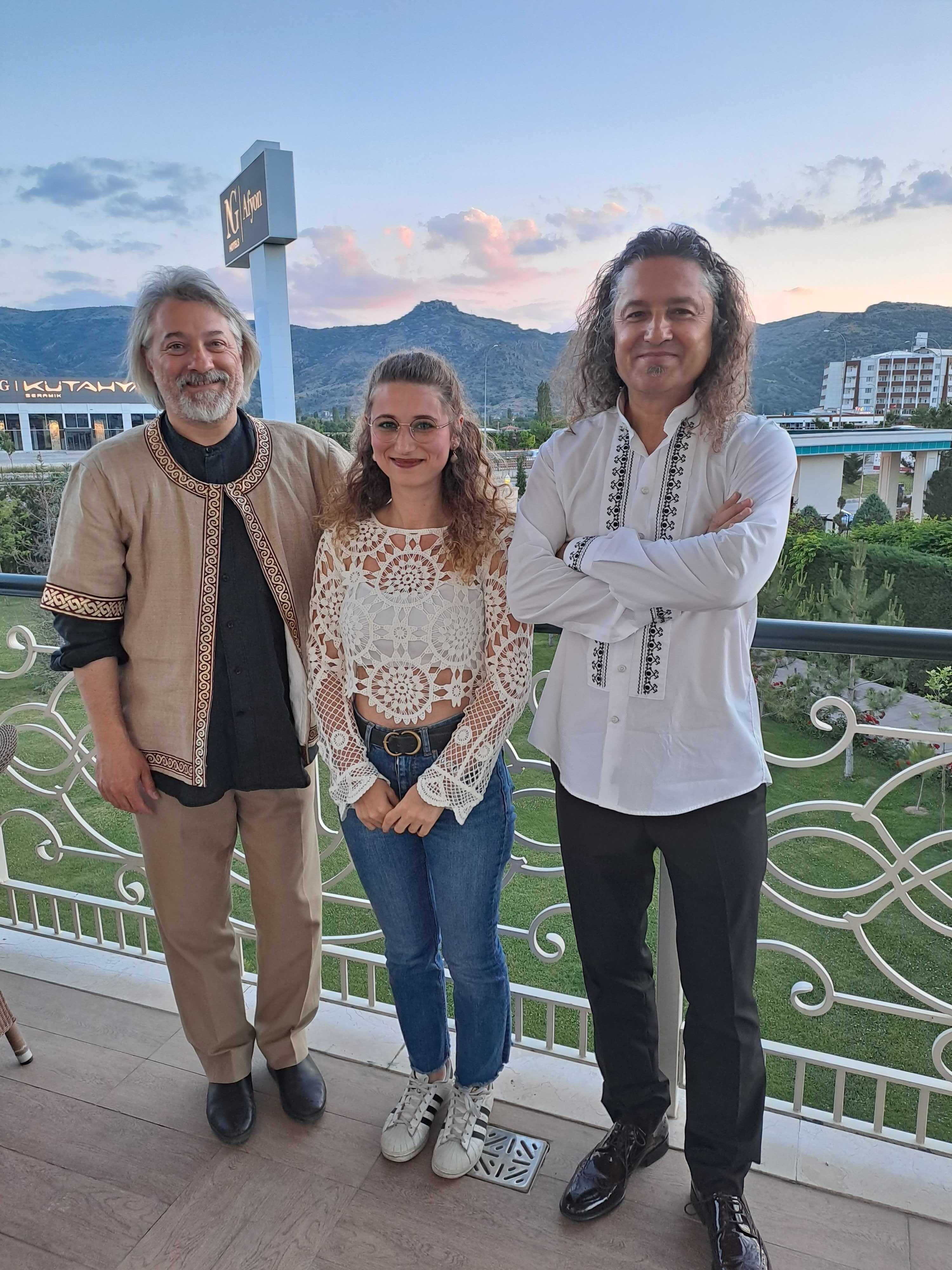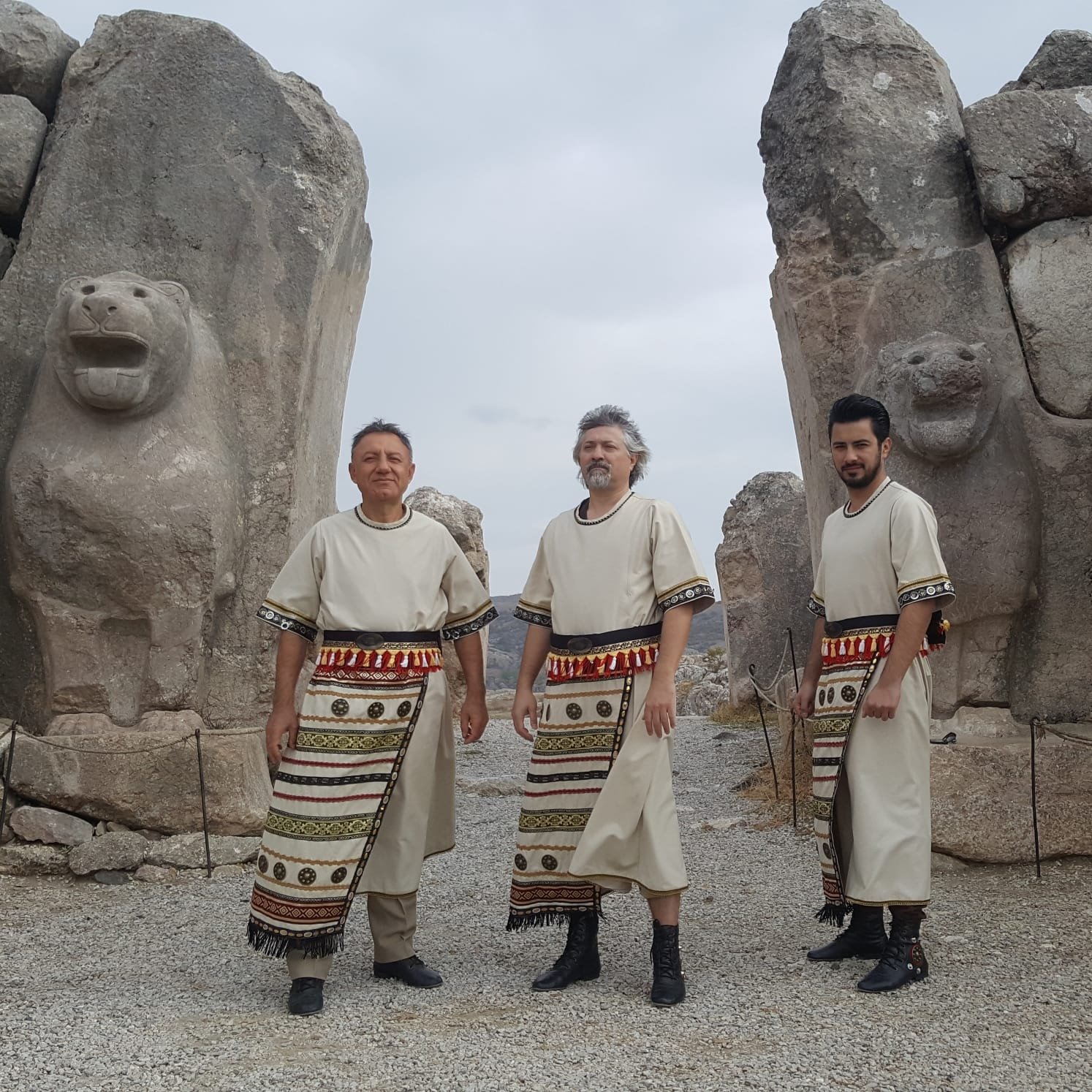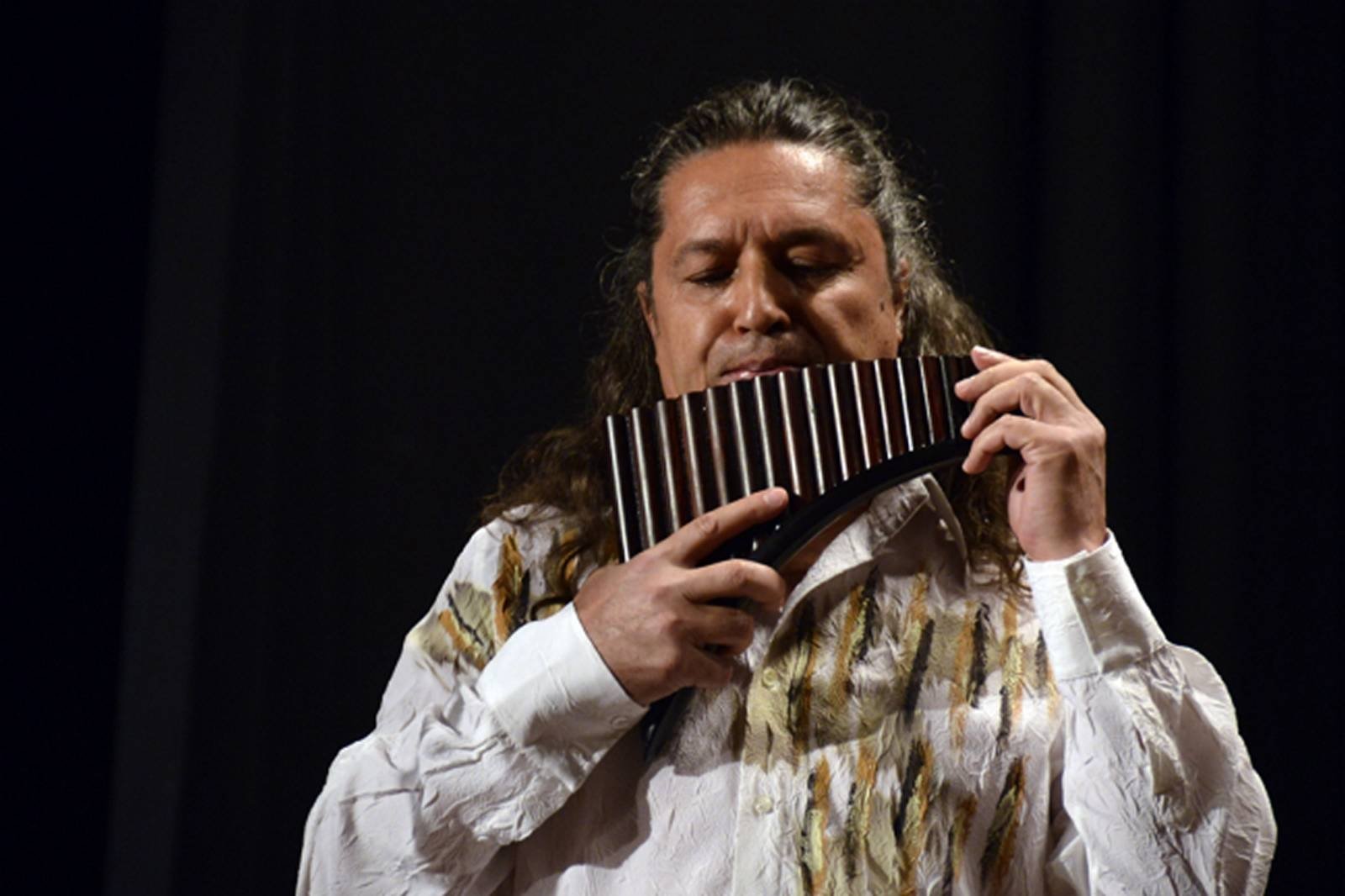© Turkuvaz Haberleşme ve Yayıncılık 2024
Western Turkey’s Afyonkarahisar province has been organizing jazz and classical music festivals for 22 years, reviving the cultural life with the attendance of many international and local master musicians. The Afyonkarahisar Jazz Festival, which was held on June 7-11 this year, hosted great performances along with various side events like mesmerizing exhibitions and talks.
One of the standout performances at the festival was the Panarp Project, created by world-famous harpist Çağatay Akyol and pan flutist Aydın Yavaş. Akyol and Yavaş took the stage with a spellbinding concert by combining Anatolian tunes with world music melodies, from tangos to the famous film score of “Kill Bill.” The duo created such a unique harmony thanks to their virtuosity on their instruments that the listeners gave a standing ovation at the end of the performance and could not help requesting one or two more songs from them.

It was after this outstanding performance that I had a chance to meet and talk Akyol and Yavaş to learn more about these two great musicians’ journeys in the world of euphony. Meeting Turkey’s first male harpist Akyol and first and only pan flutist Yavaş, who can play these pipes at the academic level, was an exciting and unforgettable moment.
As aforementioned, Akyol is known as the first male harpist in Turkey. Due to its aesthetics, the harp is generally associated with women. Challenging notions that harps are only played by women, Akyol is a solo harpist of the Turkish Presidential Symphony Orchestra (CSO).
Akyol’s long adventure in music started at the age of 7 when he began to learn to play the block flute after following the suggestion of his mother. Noting that although he is from a musician family, the harpist said his parents were good listeners that have a fine ear for music. Growing up in a house full of quality music, Akyol remembers that his father used to make him listen to a radio program so he could hear the tones of the harp.
After consulting one of his friends studying at Ankara State Conservatory, Akyol’s father encouraged him to take the test for the conservatory. Dreaming of playing violin, Akyol managed to get into the conservatory; however, different training was waiting for him thanks to a twist of fate.
Before his interview with trainers of the conservatory, Akyol heard two people talking about the harp, describing its shape and the sound it makes. During his interview, he was offered the possibility of playing a wide range of instruments from cello to contrabass to piano but not violin. Hoping to receive an education at the conservatory, Akyol said that he was willing to accept any instrument. When one of the interviewers asked him whether he wanted to play the harp, Akyol, although he had never seen a harp before, described the instrument and said that he would aspire to play it. This is actually how his long odyssey that changed the course of his life started.
Akyol became a student of Kaysu Doğanay at the conservatory in 1980 and completed his education in 1988, a year earlier than the normal period of study. Stating that the education at the conservatory is intense and hellacious, the musician said that a conservatory student spends 80% of his time with his instruments. Describing musical instruments as a “wooden piece” jokingly, Akyol implied that a musician feels all emotions from anger to sadness with his instrument. He also reiterated that being a musician requires great discipline and added: “In this job, one does not need talent but great effort. He should practice for long hours every day.”
In the same year when he finished the conservatory at the age of 19, Akyol started to work as a solo harpist in the CSO. The next year, the German Academic Exchange Service (DAAD) provided him with a scholarship, which paved the way for him to do his master’s degree at Berlin Music Academy between 1991-1993. He also successfully represented our country in many international youth orchestras between 1989 and 1995.
In 1992, he worked as a guest artist at Rundfunk Sinfonieorchester Berlin and Staatskapelle Dresden. Performing as a soloist with many orchestras in Turkey and abroad, Akyol was invited as a jury member to the Felix Godefroid International Harp Competition in 2006 and served as a guest artist in the Mahler Chamber Orchestra between 2008 and 2010.
Throughout his career, the great harpist took part in the most prestigious festivals in the world such as the Salzburg Music Festival, Wien Modern, BBC Proms, the Budapest Spring Festival, the Schleswig Holstein Music Festival, the Festival de Radio France en Montpellier and Ferrara Musica as well as working together with world-renowned conductors such as Claudio Abbado, Bernard Haitink, Riccardo Chailly, Peter Eotvos, Michael Gielen, Yakov Kreisberg, James Judd, Giuseppe Sinopoli, Tugan Sokhiev, Daniel Gatti and Daniel Harding.
Akyol also participated in the research on Hittite music and Hattusha in Anatolia within the scope of a European Union project in 2011 and was recorded as the first and only person to play Hittite harps in the world.
Dubbed “the acrobat of his instrument,” Akyol is a passionate musician who also devoted himself to introducing the music of his lands to the world. Therefore, he founded the “Arpanatolia” project with Turkish musician Ferhat Erdem in 2012 to bring together Anatolian instruments and the harp.

The Arpanatolia project comprises of Akyol on harp, Erdem on sipsi-kaval and Cemal Özkızıltaş on authentic percussion. The lyre, harp and wind instruments, which were used extensively in music made in Anatolian lands thousands of years ago, have managed to reach the present day with their glorious tunes and renewed designs. Arpanatolia creates a new and different synthesis with these instruments, which always preserved their value in Anatolia’s music culture.
Bringing together the sipsi and the kaval, the most important symbols of mysticism in Anatolia, with the soothing tones of harp and percussion, Arpanatolia has given many concerts in Turkey and abroad, significantly contributing to the promotion of Anatolian music and culture.
The Phrygian god of nature, Pan, one day encounters the beautiful wood nymph Syrinx while wandering around his country to protect nature. Falling in love with her, Pan chases after her but Syrinx is a follower of the goddess Artemis. (Artemis and her followers had vowed to remain virgins forever.) Realizing that there is no salvation from Pan, Syrinx flees. When Pan catches her by a spring and wants to hug her, Syrinx is turned into a reed, and Pan's arms are wrapped around a bunch of reeds. When Pan sighs in sadness, suddenly, a sad and sweet melody takes over the place. Pan realizes the sound came from the reeds. He yearns to be with Syrinx and cuts seven reeds of different sizes, glues them side by side with wax, and invents the musical instrument he called "Syrinx." This musical instrument is called the pan flute today.
Another talented musician of the Panarp Project is pan flutist Yavaş, who has worked to promote this mythological instrument in Turkey. The story of Yavaş with music also started at an early age like Akyol as he was also raised in a family fond of good, quality music. Yavaş, for example, remembers that his father and brother, who were working in Germany, would go to long plays featuring the music of Romanian pan flute master Gheorghe Zamfir.
However, as pan flute was not common in those times, Yavaş took up the accordion as his very first instrument and continued to learn piano later. He graduated from Uludağ University's Music Education Department in 1987. In 2000, he completed his master's degree in pedagogy and soloist performance in the field of piano at the Georgia Medea Paniashvili Academy of Music in Tbilisi under the supervision of professor M. Chumburidze.
Since 1990, he has participated in ethnic festivals in Bulgaria, Italy, France, Switzerland, Romania, Moldova and Georgia with the accordion. In 2001, he founded the nine-member "Balkan Accordion Orchestra" consisting of musicians from five Balkan countries, Bulgaria, Albania, Macedonia, Yugoslavia and Turkey.
Yavaş then started to self-train on pan flute, and his passion for this instrument led him to Romania, where the best pan flutists provide education. As of 2000, he was among the master class students of the world's greatest pan flutist Zamfir. Following his master class education, Yavaş attended several festivals with Zamfir and started the "Tango" album project with him in 2004. Although this album project could not be completed due to several reasons, Yavaş expressed hope that they will finish it in the future.
Yavaş also launched a universal music center in Turkey’s Eskişehir in 1990. In this center, the musician provides children with a special Japanese musical education system, which has been successfully applied in 40 countries for 50 years. Thanks to this education, the innate abilities of children are revealed and they grow up as very good musicians. According to Yavaş, for a student who received special training at the Aydın Yavaş Universal Music Center, learning a second instrument is extremely easy. And he tries to encourage students to take up the pan flute as their secondary instrument to spread the popularity of its mystic sounds to much wider masses in Turkey.

Although Yavaş is best known for sustaining marvelous works to motivate more musicians to play the pan flute, he also provides education in piano and accordion. In his musical center, he teaches piano playing techniques, note information and rhythm in specialized lessons. The center also teaches accordion techniques through training that can be organized for individuals or groups. The institution supports people who want to play an instrument, whether or not they have played one before.
Besides, Yavaş was the one who managed to introduce the accordion as a branch course at Uludağ University's Music Education Department. Between 2000 and 2006, he worked as an accordion instructor at the university as well. While working as an instructor, he also continues to work on concerts, albums, education and other musical projects with Zamfir.
To listen to the mesmerizing tunes of these two pioneer musicians, stay tuned for their concerts in Turkey or abroad!
